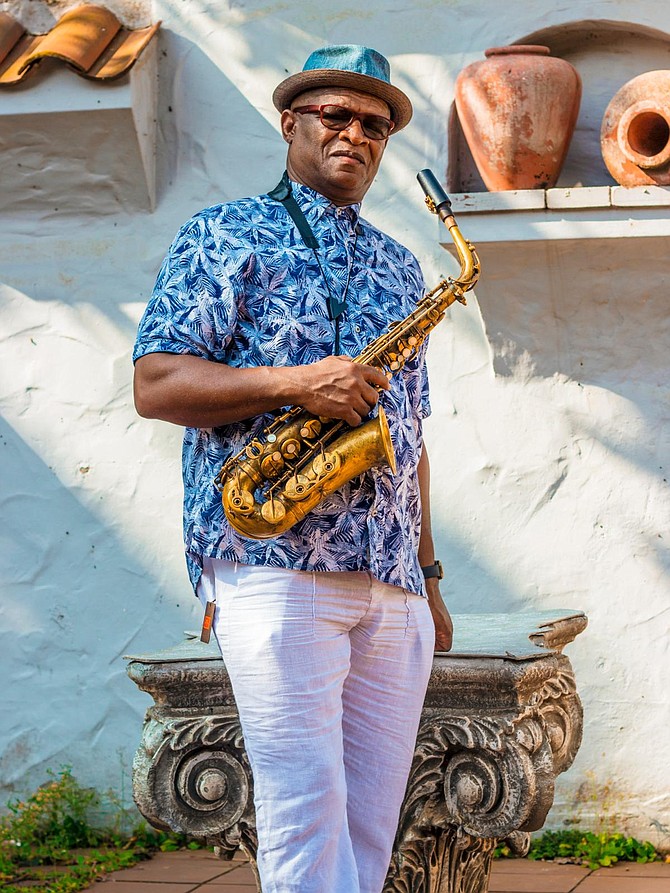Musician creates opportunities for Black jazz musicians
Ernest Dawkins is a saxophonist, educator and band leader. He also is the head of Live the Spirit Residency, which hosts the Englewood Jazz Festival. PHOTOS PROVIDED BY ERNEST DAWKINS
Live the Spirit Residency produces the Englewood Jazz Festival, which is in its 23rd year. There is also Live the Spirit Big Band and the Young Masters, where Dawkins recruits some of the best and brightest to mentor.
Dawkins has always been a proponent of having an institutional music training, as well a musical training in the community.
“Music is transmitted through people, it’s not transmitted through certain ways of teaching it. It’s something you have to experience,” he said.
Dawkins likened musical training to a Baptism. A person goes into the water and when they come out, they become better, incorporating tools and techniques. He believes music is communicated telepathically through the ethos and one has to learn the language. It is a process.
Dawkins has played next to some of the greatest musicians and that is one way he learned to play music. Hearing a musician bend a certain note, putting a certain turn on a line, and attempting to mimic those devices is how Dawkins learned the language of music.
Dawkins started the Live the Spirit Residency after receiving a grant. He wanted to set up some communal structures related to the arts, that would become institutions. He partnered with the Muntu Dance Theatre, the Community Theater Workshop and the Museum of Contemporary Art. Dawkins started Live the Spirit Big Band, and he paid the young people in the band. Dawkins believes in paying artists for their work. That way, the art continues because musicians are able to make a living off their craft.
Dawkins created the Live the Spirit Residency and Live the Spirit Big Band mostly for Black musicians, because he is seeing a decrease in young Black musicians playing jazz.
Dawkins teaches young musicians how to compose music. It can enable a musician the opportunity to make money, outside of performing, because those musicians can be paid from the residuals of the music. He advises young musicians to come up with a five year plan or a 10 year plan that includes releasing music once a year. It builds their discography and they can make money from that music. Everything Dawkins does is free to the community, including his senior band.
On Friday, April 1, at the Hamilton Park, 513 W. 72nd St., Dawkins will perform his piece “Refound Connections,” which he was commissioned to write. It is about his reconnection to the South and his roots there. The piece is symbolic of that. He recently performed it in Durham, North Carolina.
On Saturday, April 2, there will be a live streamed session with Isaiah Collier. Collier is a composer, saxophonist, drummer and activist.
For more information about Ernest Dawkins, visit www.ernestdawkins.com.
Latest Stories
- Legacy Speaks: Mapping Ida B. Wells' Imprint – A Tribute to Ida B. Wells on Her Birthday
- Cook County Commissioner Donna Miller Launches Congressional Campaign
- Community’s Voice Shapes Future Leadership
- Chicago Board of Education Approves Resolution Launching Healthy Green Schools Pilot Program
- CVS Health opens new Workforce Innovation and Talent Center in Chicago
Latest Podcast
STARR Community Services International, Inc.

